Maximum security for the highest levels of government
In ministries, confidentiality isn’t optional — it’s mandatory. Whether coordinating high-level decision-making, managing crisis communication, or collaborating across departments, Teamwire ensures sovereign and fail-safe communication. Fully GDPR- and NIS-2-compliant, hosted in Germany, and completely independent of U.S. cloud providers.

Typical challenges for ministries
In ministries, communication is a matter of national security. It involves classified documents, political decisions, and coordinated crisis response. Yet in reality, many settings struggle with fragmented systems, insufficient data protection, and a lack of resilient backup structures — all of which put confidentiality and operational capability at risk.
Why Teamwire is the right messenger for ministries and governments
Secure communication for confidential government affairs
In ministries, information security is non-negotiable. Whether cabinet coordination, political strategy or crisis response — every message may carry strategic or security relevance. Teamwire was built precisely for this: fully encrypted, completely data-sovereign, and fully compliant with European security and regulatory standards.
Full data sovereignty
Your communication data remains where it should — in Germany. Teamwire is hosted exclusively in certified European data centers (ISO & BSI C5) and guarantees immunity from third-country access, including U.S. legislation such as the CLOUD Act or FISA.
Multi-layer encryption & Zero-Trust architecture
All content, metadata and storage processes are secured using multi-layer encryption. In addition, the Zero-Trust model continuously verifies every device, user and connection — no implicit trust, no exceptions.
Privacy by Design & Default
Data protection is not an add-on, but a core principle: no metadata analysis, no address book access, no tracking — ever.
Custom data retention policies
Define how long messages, files and logs are stored. Automated deletion enables GDPR-, NIS-2- and IT-SiG-compliant data handling — without increasing administrative workload.
Certified security — verifiable and audit-ready
Teamwire is ISO 27001 certified. Hosting partner IONOS meets BSI C5 requirements. This enables ministries to meet NIS-2 and IT Security Act 2.0 obligations with verifiable documentation — ensuring secure, sovereign communication across all levels of government.
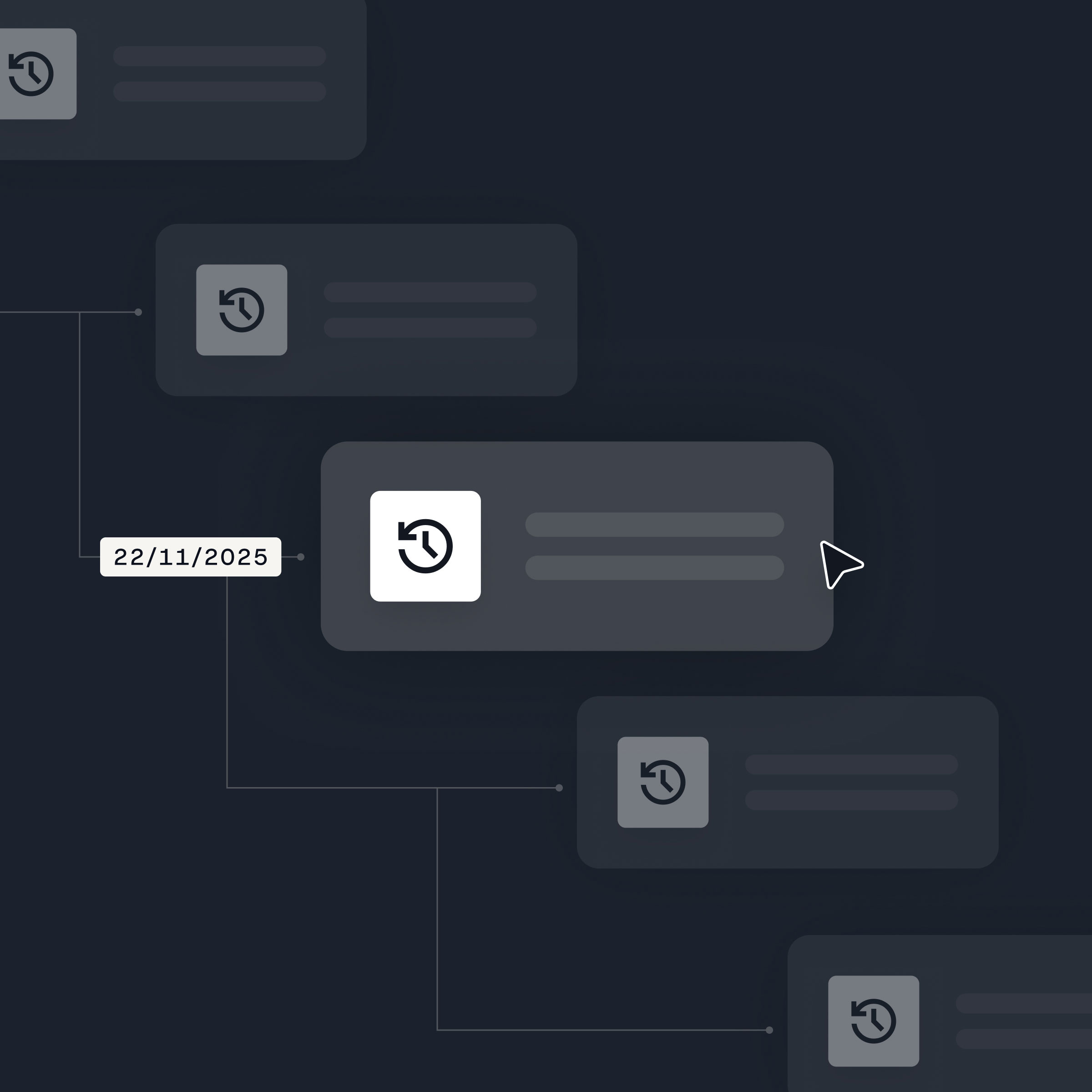


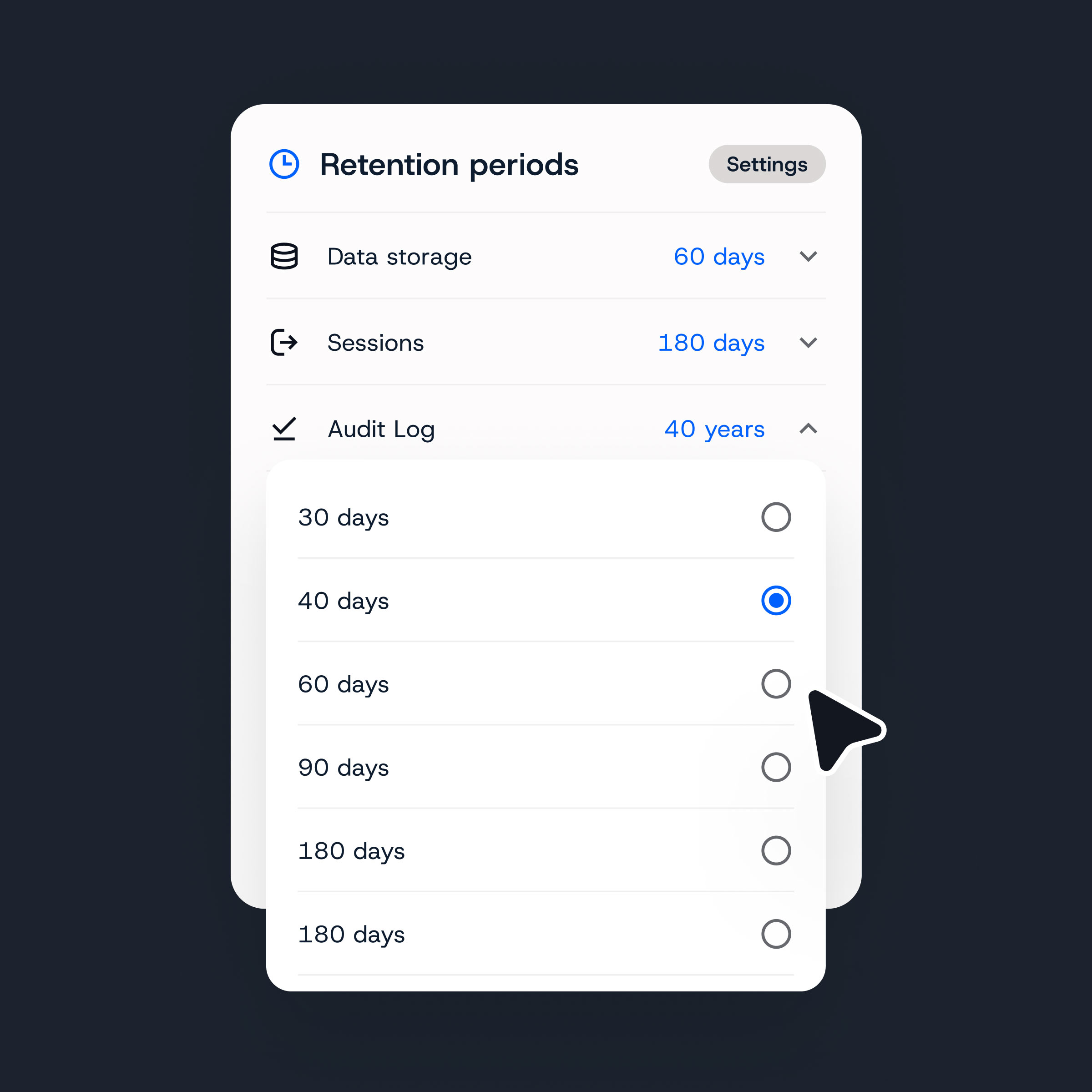

Fast, secure and sovereign — this is how digital government communication should work
Email, phone calls, official memos or cabinet meetings remain essential. But whenever information must be shared across departments, decisions accelerated or crises coordinated in real time, traditional systems reach their limits. Teamwire closes this gap with a secure, encrypted and sovereign real-time platform — purpose-built for confidential government work.
Securely share sensitive information
Send documents, voice messages, photos or classified notes end-to-end encrypted to departments, cabinet members or interministerial teams. Ideal for sensitive coordination or crisis communication.
Comment and edit files directly
Add notes, annotations or visual markings directly in the app — for example on drafts, cabinet submissions or operational reports. All changes are securely recorded and fully traceable.
Quick decision-making via secure polls
Coordinate decisions, approvals or meeting times within seconds. Results appear instantly — efficient, transparent and audit-proof.
Seamless integration — without shadow IT
Teamwire integrates smoothly alongside email, phone and DMS systems. All communication remains encrypted, traceable and fully compliant — without relying on private messaging tools.
Available on all devices — even during outages
Whether on mobile, desktop or web: ministers, state secretaries and departments remain connected at all times. Even if central IT systems fail.
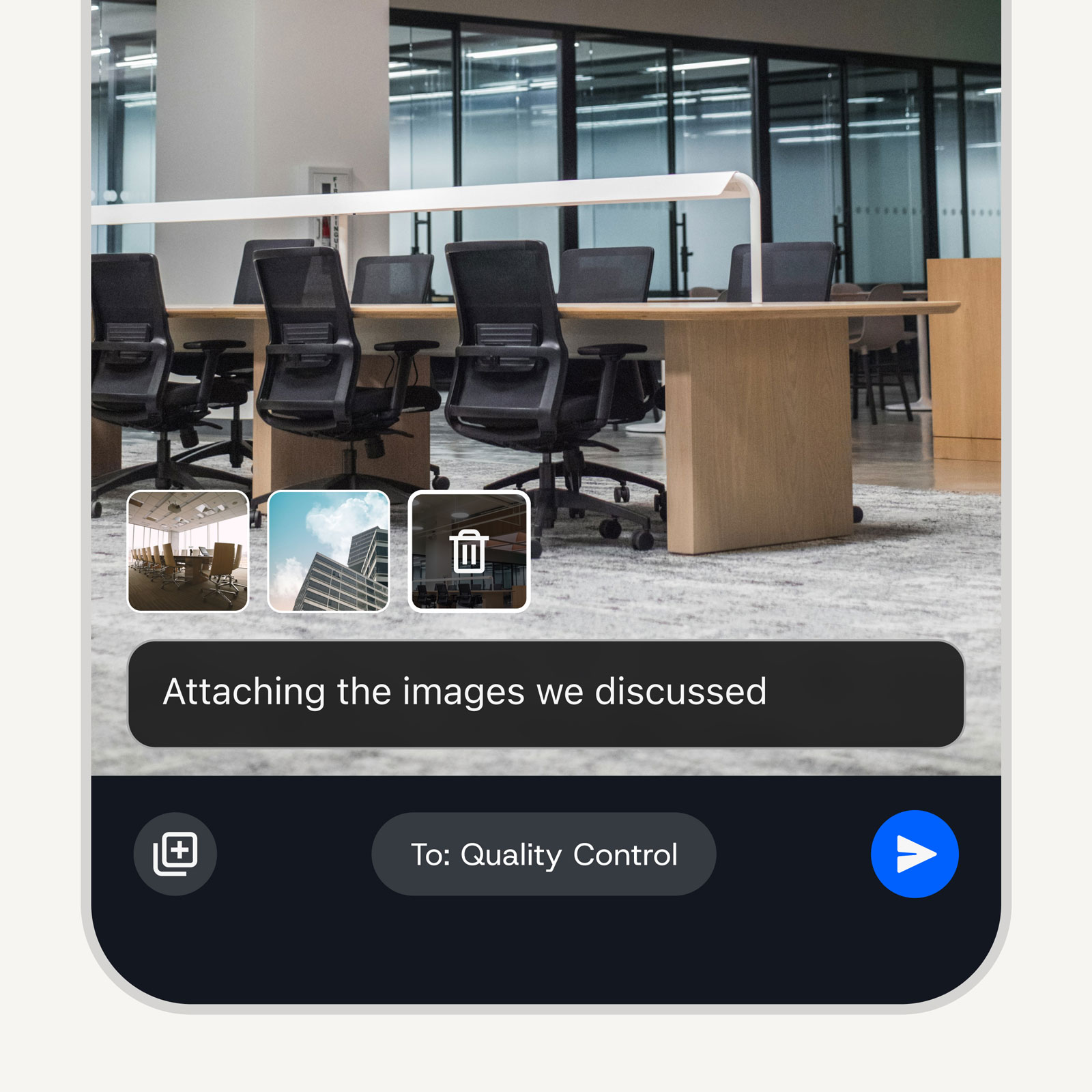
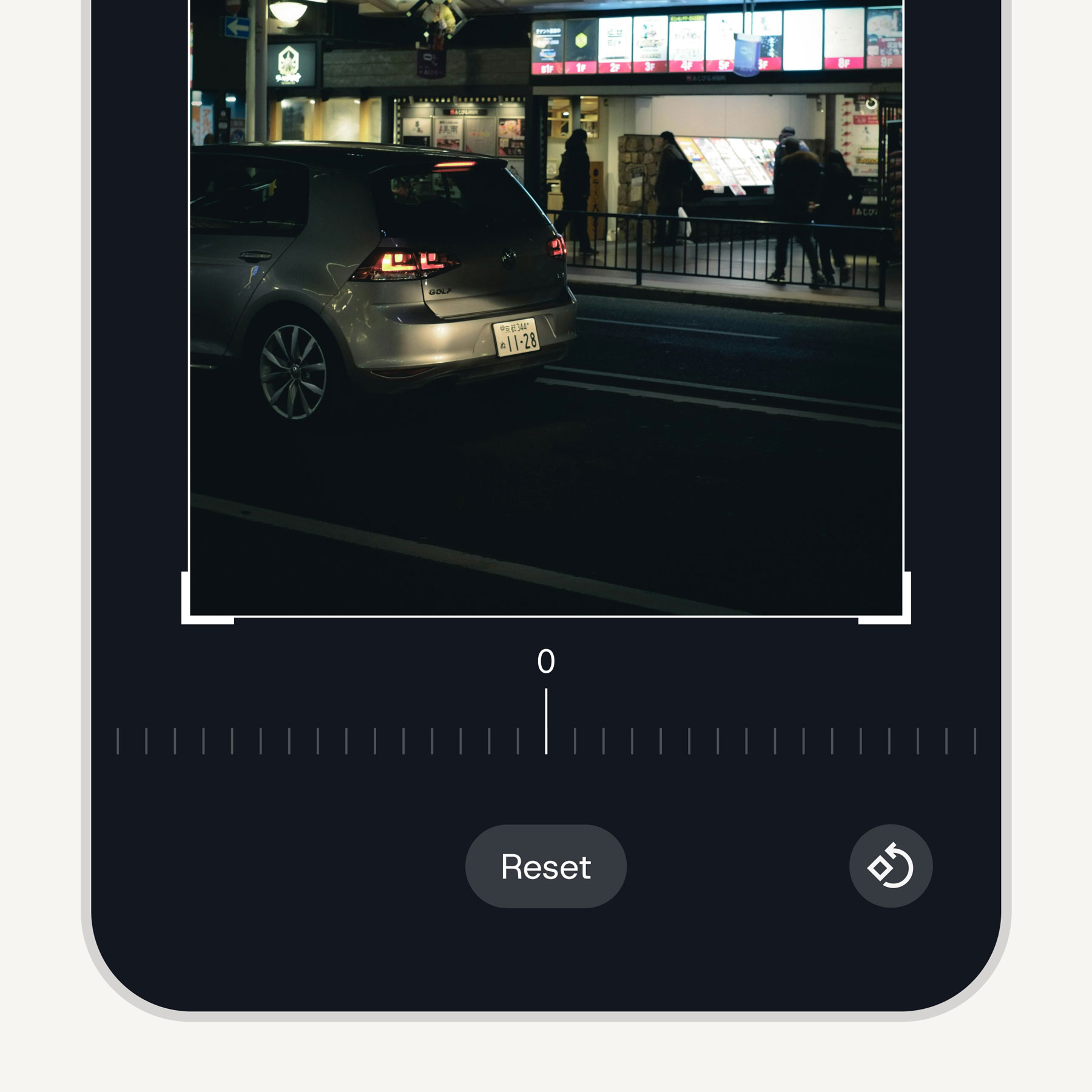
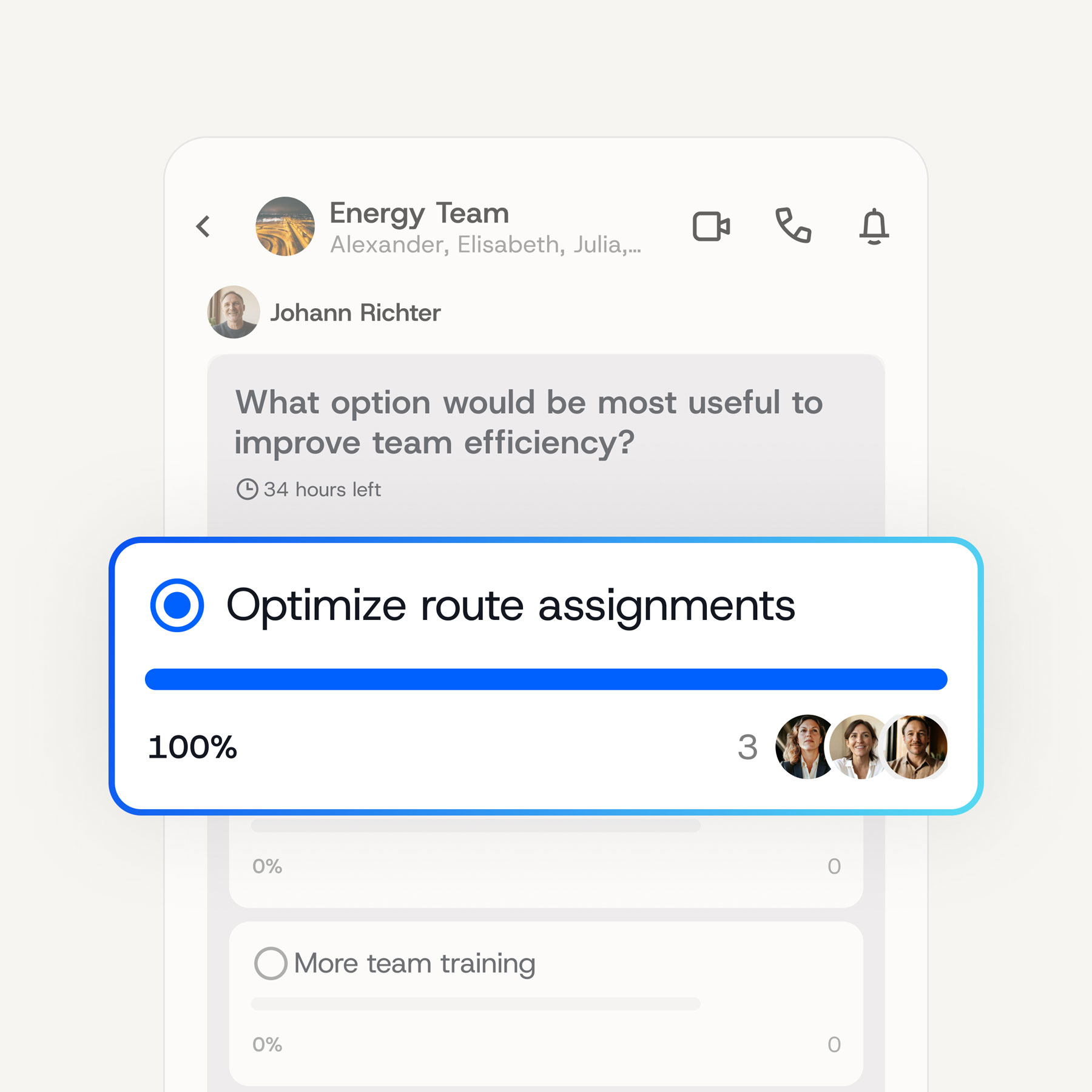
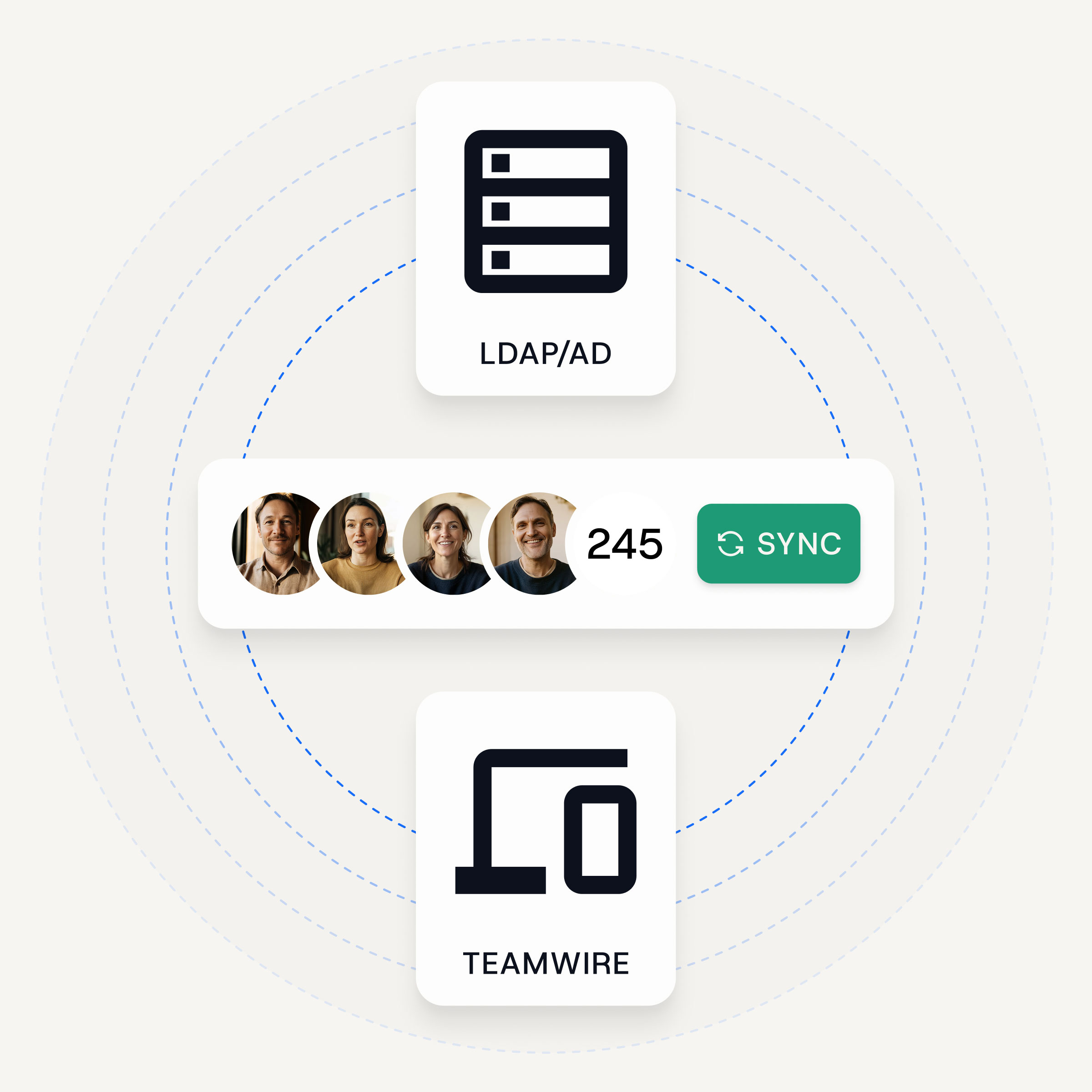
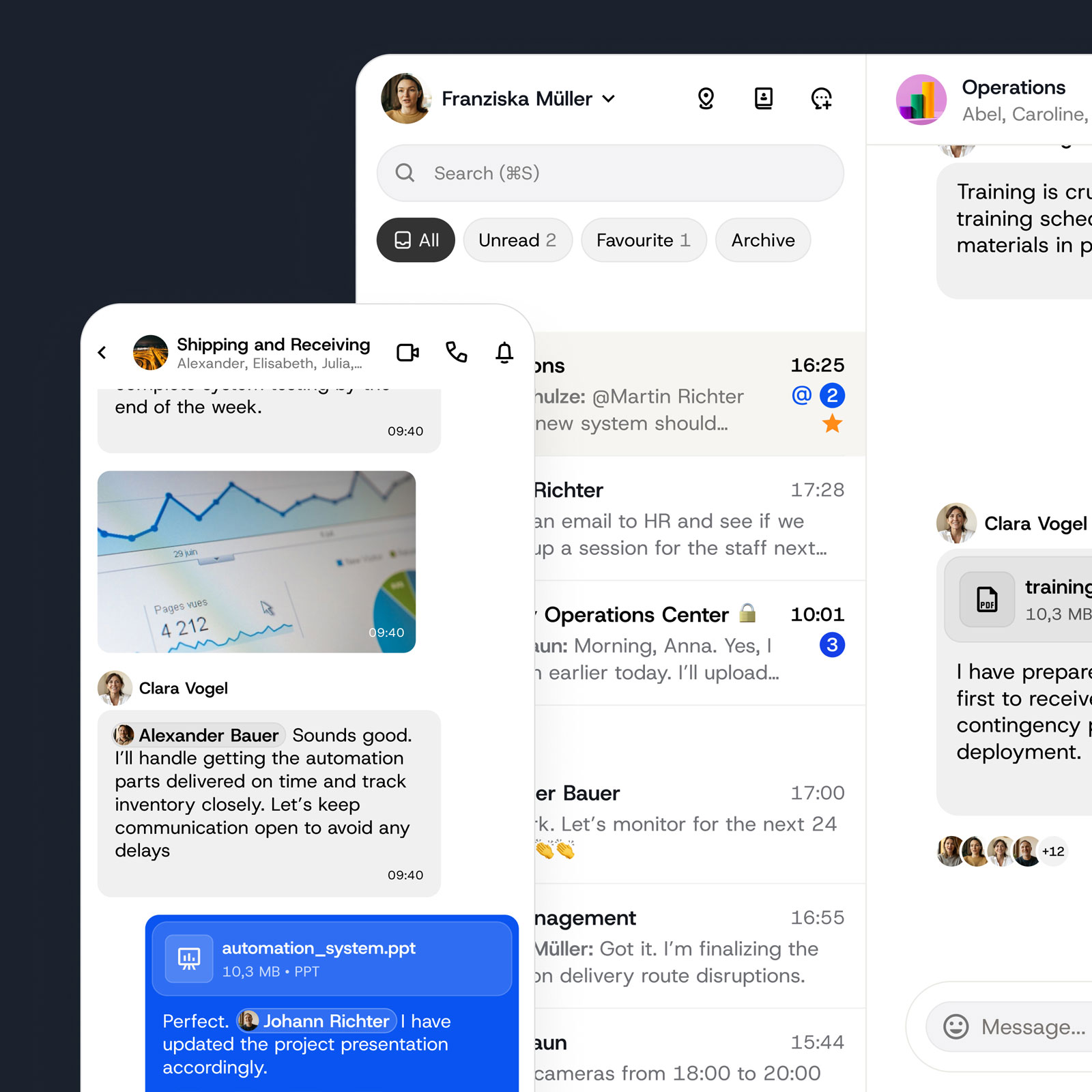
Efficient real-time coordination — and everything runs as it should
In ministries, confidential information must be shared precisely, securely, and traceably. With Teamwire, collaboration works the way it should in political environments: fast, confidential, and sovereign. Everyone involved stays informed, and decisions are made on a unified and secure communication platform.
Familiar and intuitive — with the ease of WhatsApp
Anyone who has used common messaging apps will instantly feel at home. Teamwire combines intuitive usability with the highest security standards — no training required, no learning curve, maximum efficiency.
1:1 and group communication for every scenario
Create secure chats for parliamentary groups, cabinet meetings, working groups, or cross-departmental task forces. All relevant stakeholders stay informed at all times.
Secure voice and video conferencing for direct coordination
Conduct confidential conversations or ad-hoc meetings — encrypted and independent of foreign cloud providers. Ideal for crisis situations or urgent consultations.
Color-coded status and priority messages
Visually highlight urgent topics such as emergency decisions, situation reports, or new directives. Participants immediately recognize what needs attention (including read receipts).
Secure communication across hierarchies and departments
Teamwire enables structured, traceable communication between ministries, authorities, and security organizations — without the risks of shadow IT or insecure tools.
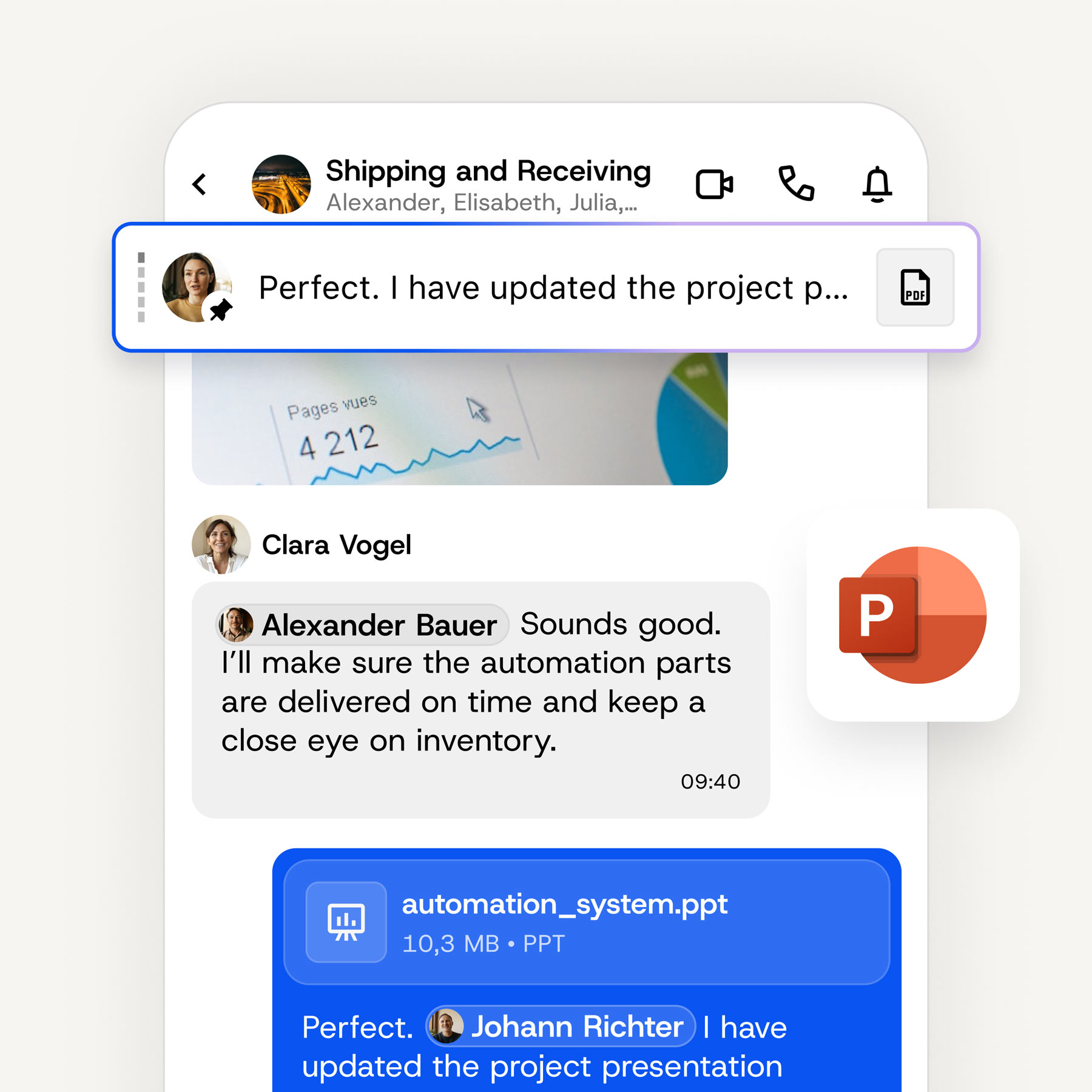
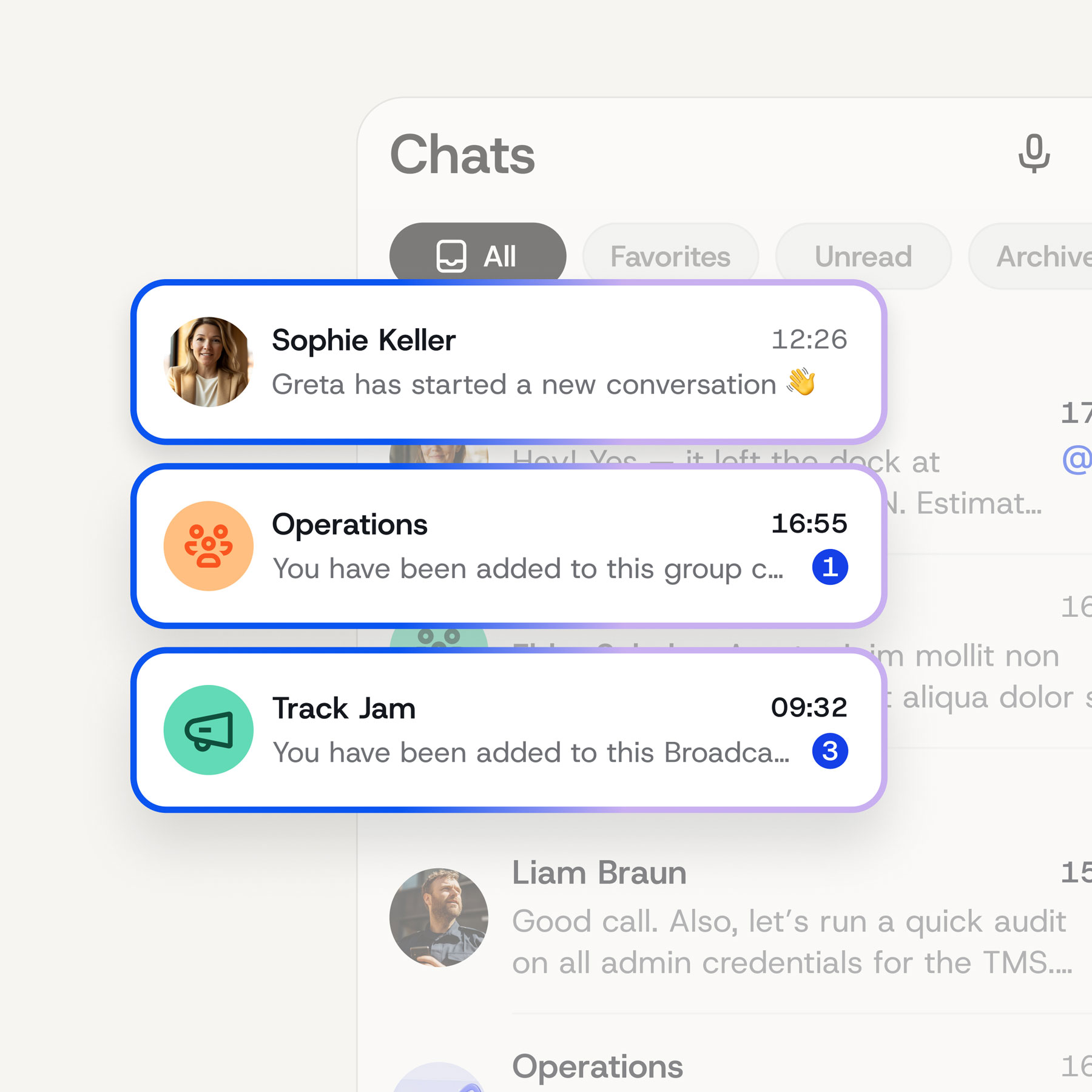


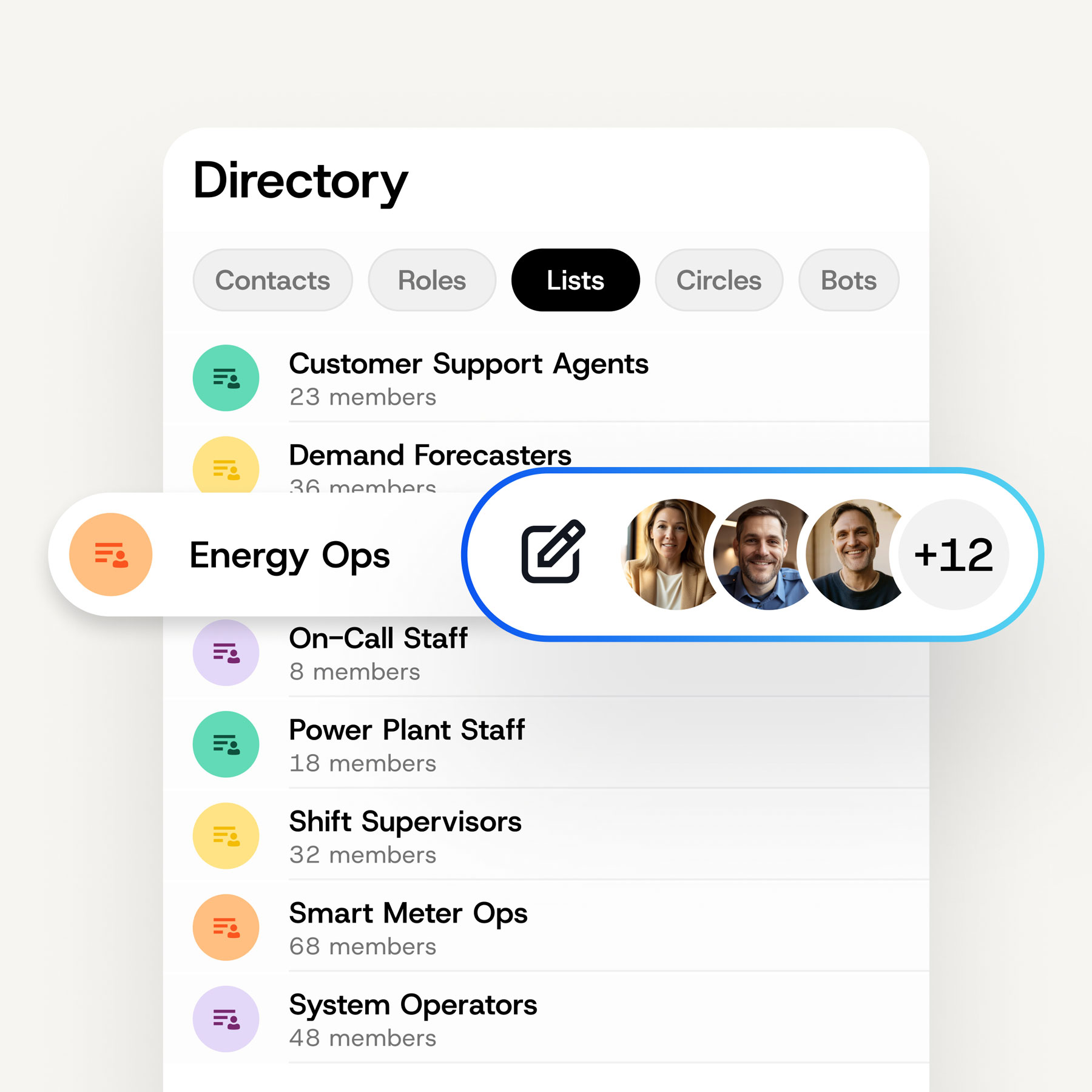
Stay operational — even during crises or cyberattacks
When cyber incidents, network failures, or IT outages occur, communication must not collapse. Government must remain able to act, and citizens must stay protected. Teamwire provides ministries with secure, independent emergency communication — ensuring operational continuity even when traditional systems fail.
Emergency alerts and panic button
Trigger alerts that override mute settings and immediately notify predefined recipients such as crisis units or senior officials. The panic button can also transmit location data and a voice message if required.
Push-to-Talk and broadcast messaging
Share critical updates with entire departments or task forces at once. Push-to-Talk enables instant voice communication without typing — essential when every second counts.
Live locations and situational awareness
Monitor operational sites, field teams, and affected locations in real time. An interactive map provides a clear overview of responsibilities and positions to enable precise coordination.
Documentation and traceability
All communication remains traceable and can be archived in an audit-proof manner if necessary. This enables ministries to fulfill their legal documentation obligations even in emergencies.
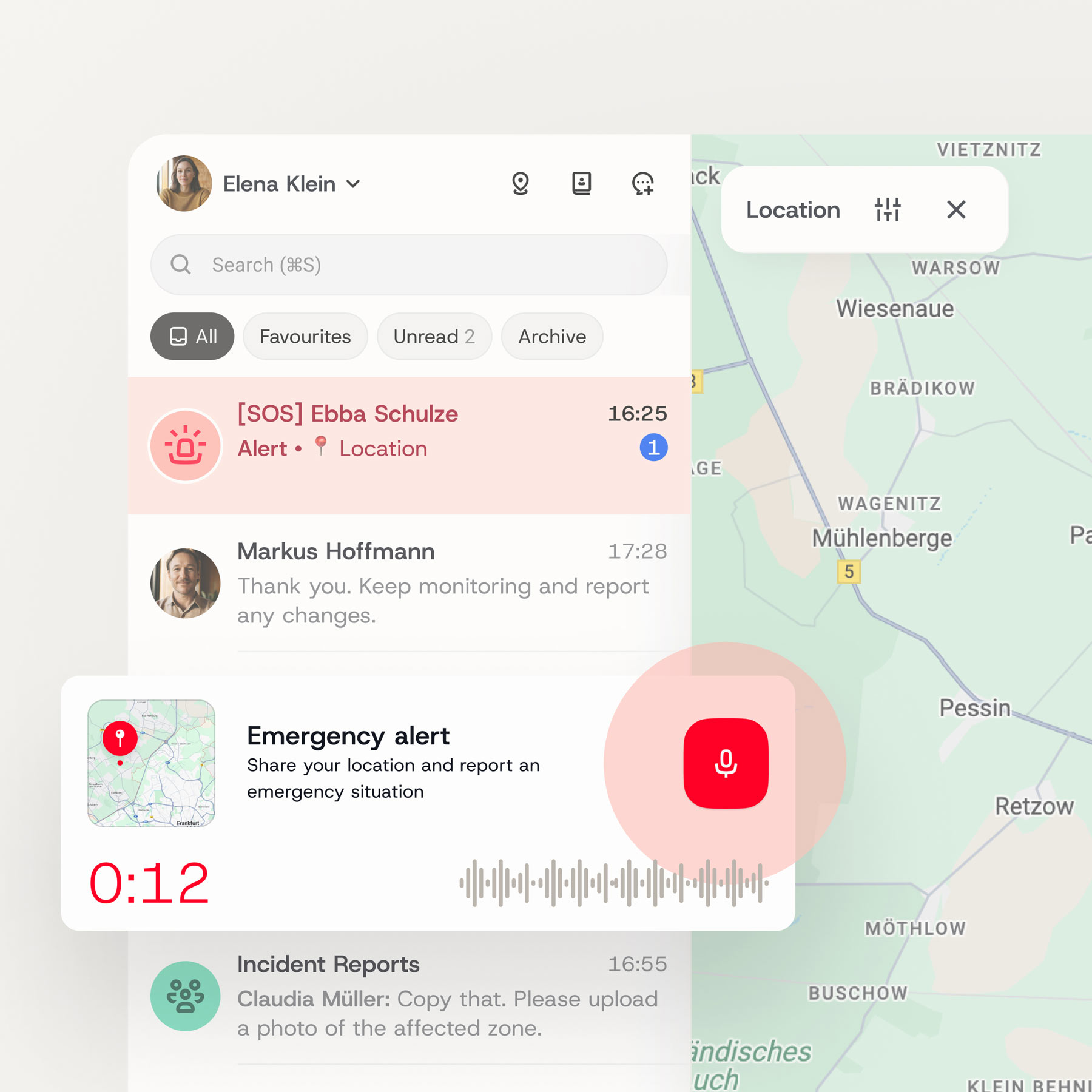
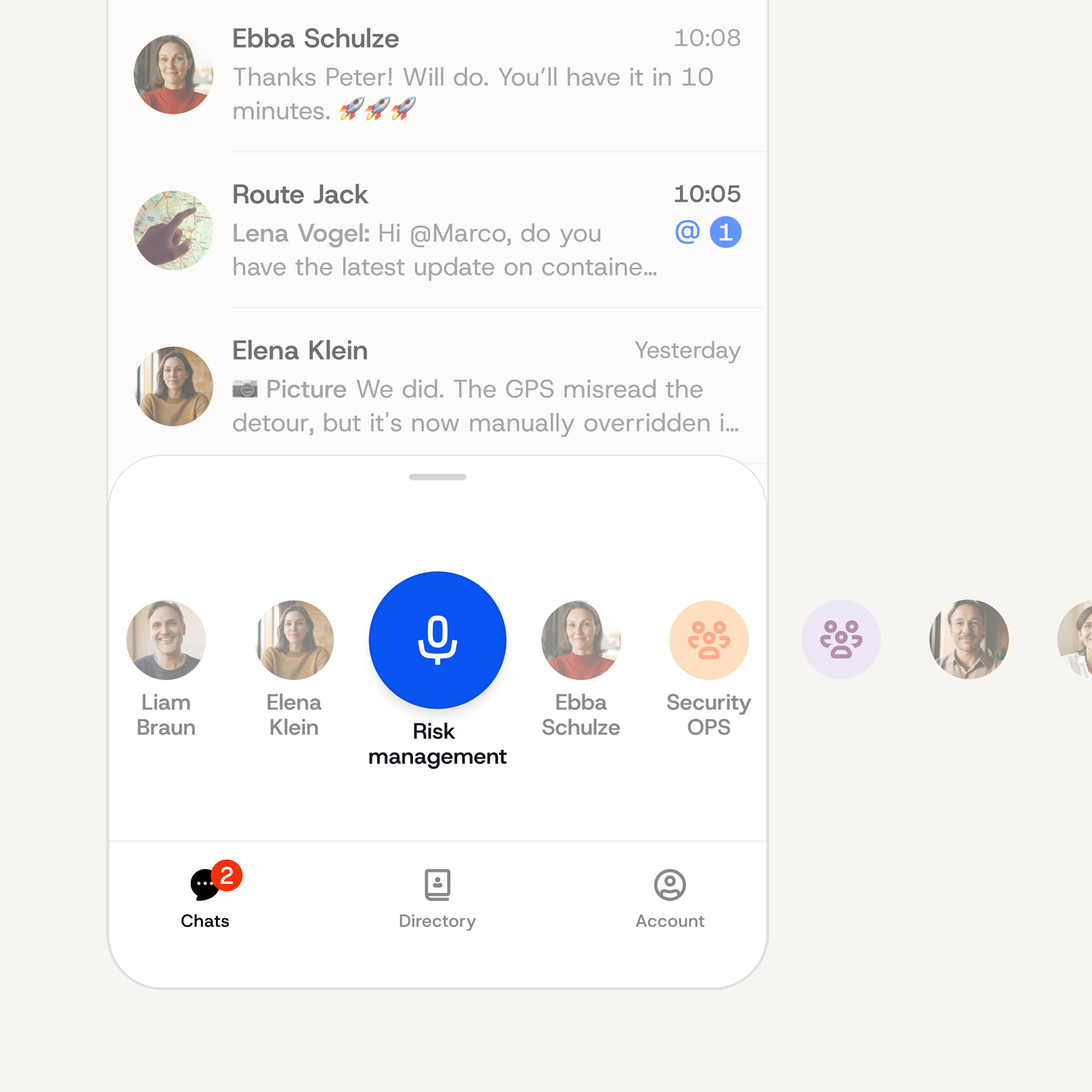
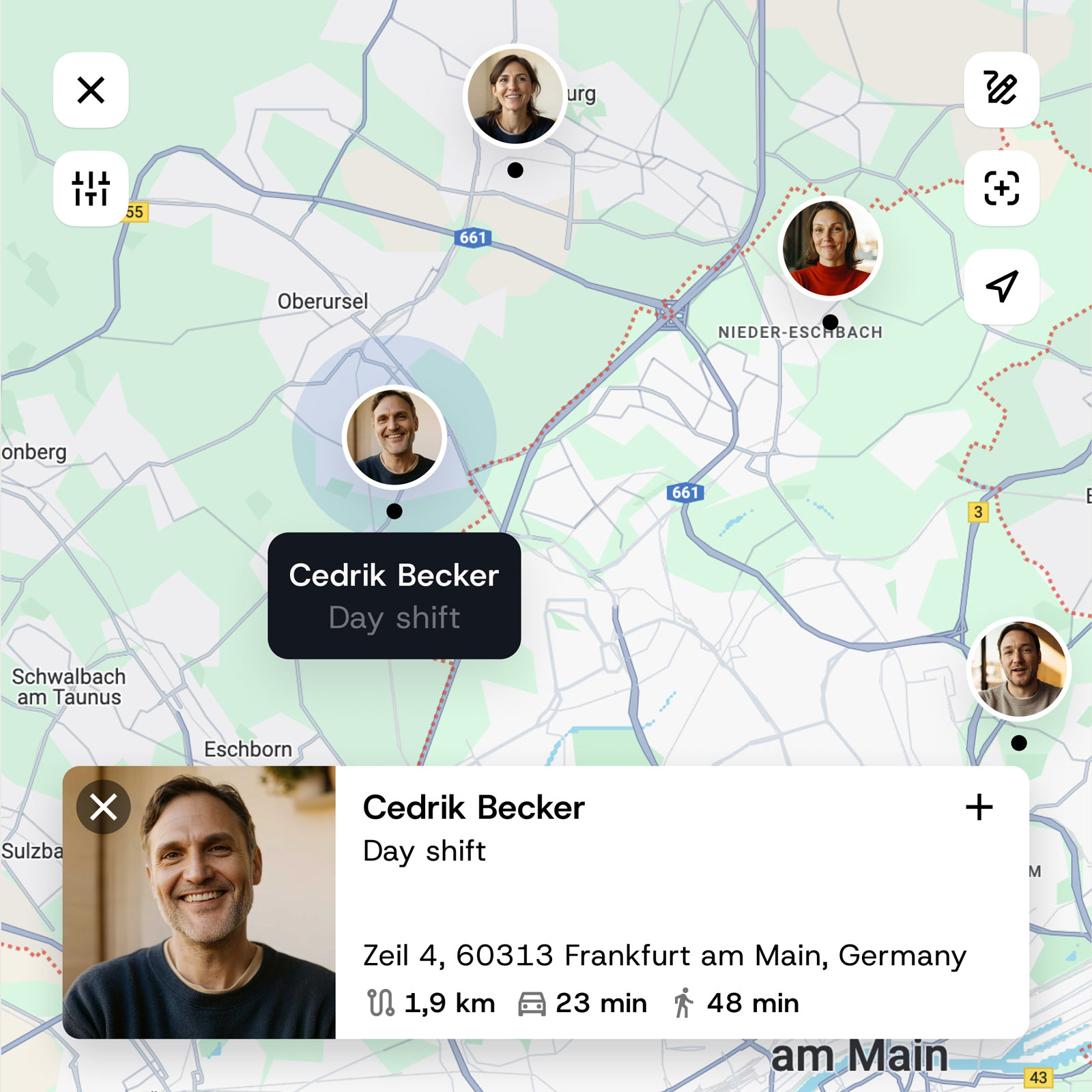

Full control over your communication — with no dependency on U.S. clouds
Digital sovereignty begins with infrastructure. Ministers and their teams must be able to communicate independently, securely, and without interruption at all times. Teamwire ensures that ministries retain full technological and legal control over their communication — with a highly available, sovereign infrastructure designed specifically for governmental requirements.
Flexible hosting: on-premises, private cloud, or public cloud
You decide where your communication data is stored — within your own data centre, in a private cloud, or in a certified German public cloud environment (BSI C5). 100% compliant with GDPR, IT-SiG 2.0, and NIS-2.
No dependence on U.S. providers or third-country access
Teamwire guarantees complete European data sovereignty. No exposure to U.S. legislation such as the CLOUD Act or FISA, no transfer to third countries, and no hidden dependencies.
Scalable architecture for every organisational level
Whether a federal ministry, state representation, or subordinate authority — Teamwire scales securely and flexibly. Multi-tenant capabilities enable separated yet federated use across multiple institutions.
High availability for mission-critical communication
Redundant cluster servers ensure uninterrupted communication — even during technical failures or network disruptions. SLAs of up to 99.99% availability are possible for critical government operations.
Automatic backups and failover systems
Continuous backups protect sensitive information. In the event of a disruption, Teamwire automatically switches to an available system — with no data loss and no interruption to communication.
Complete control over access and interfaces
All API connections, user permissions, and device access are centrally managed. Ministries maintain full control over their data, infrastructure, and communication flows at all times.
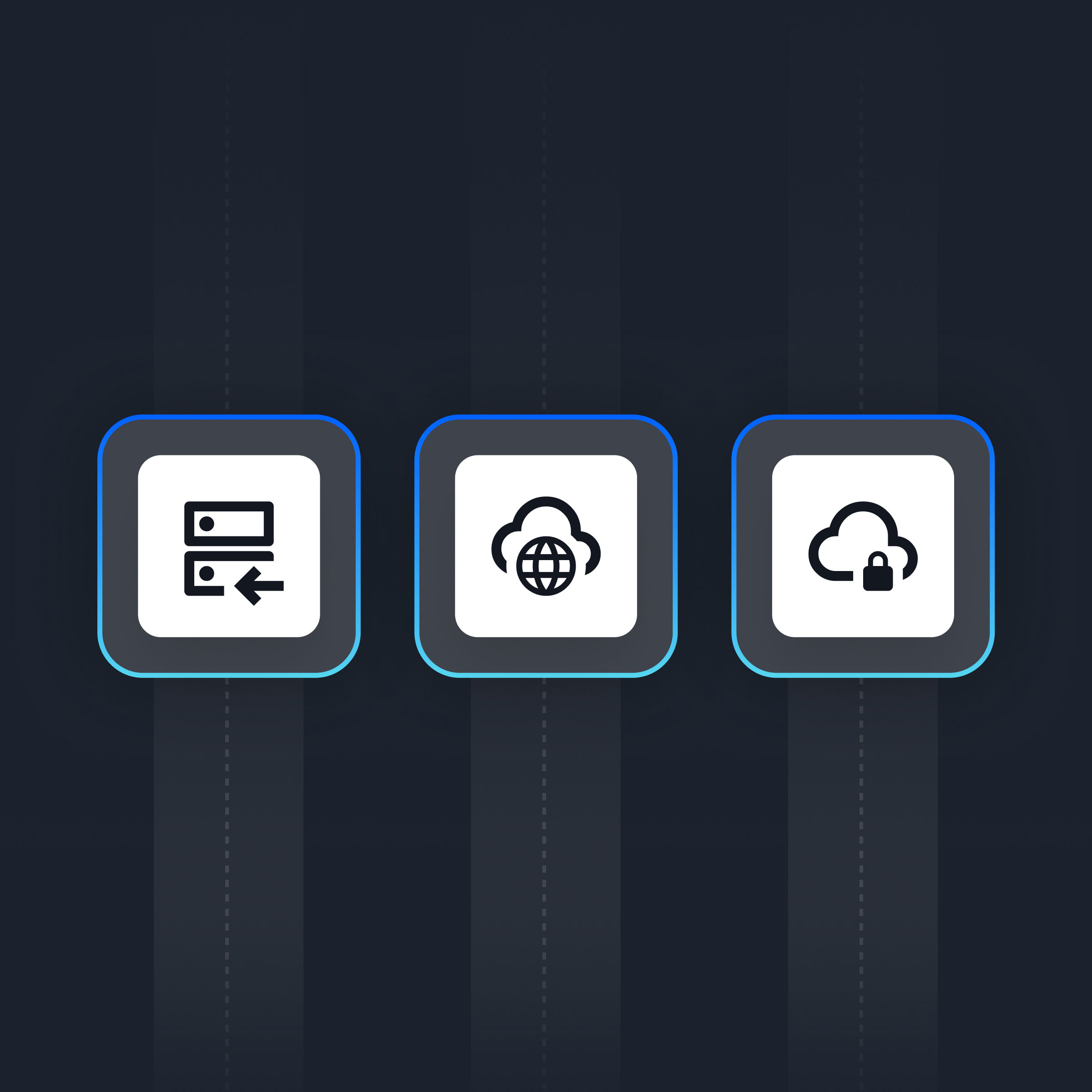

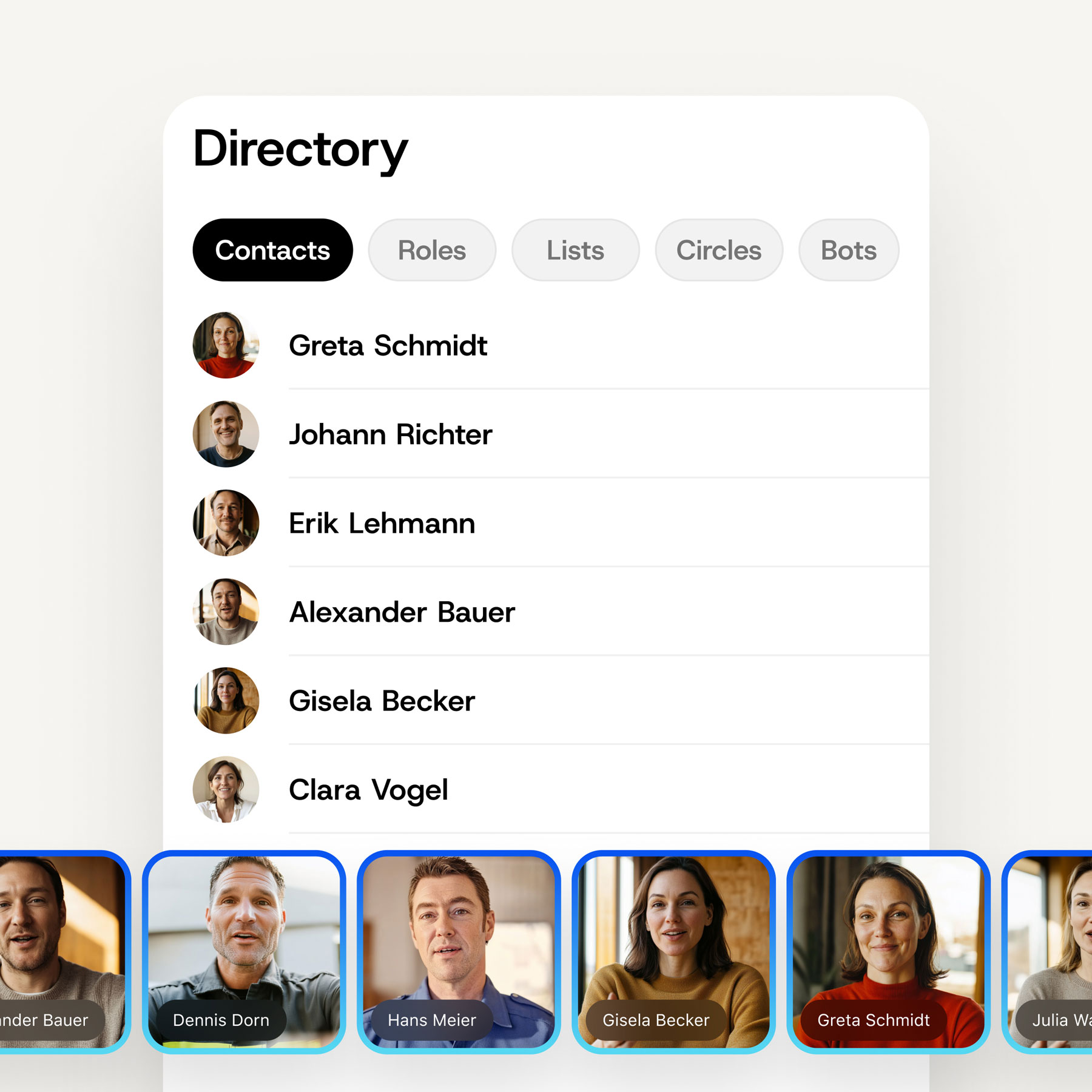
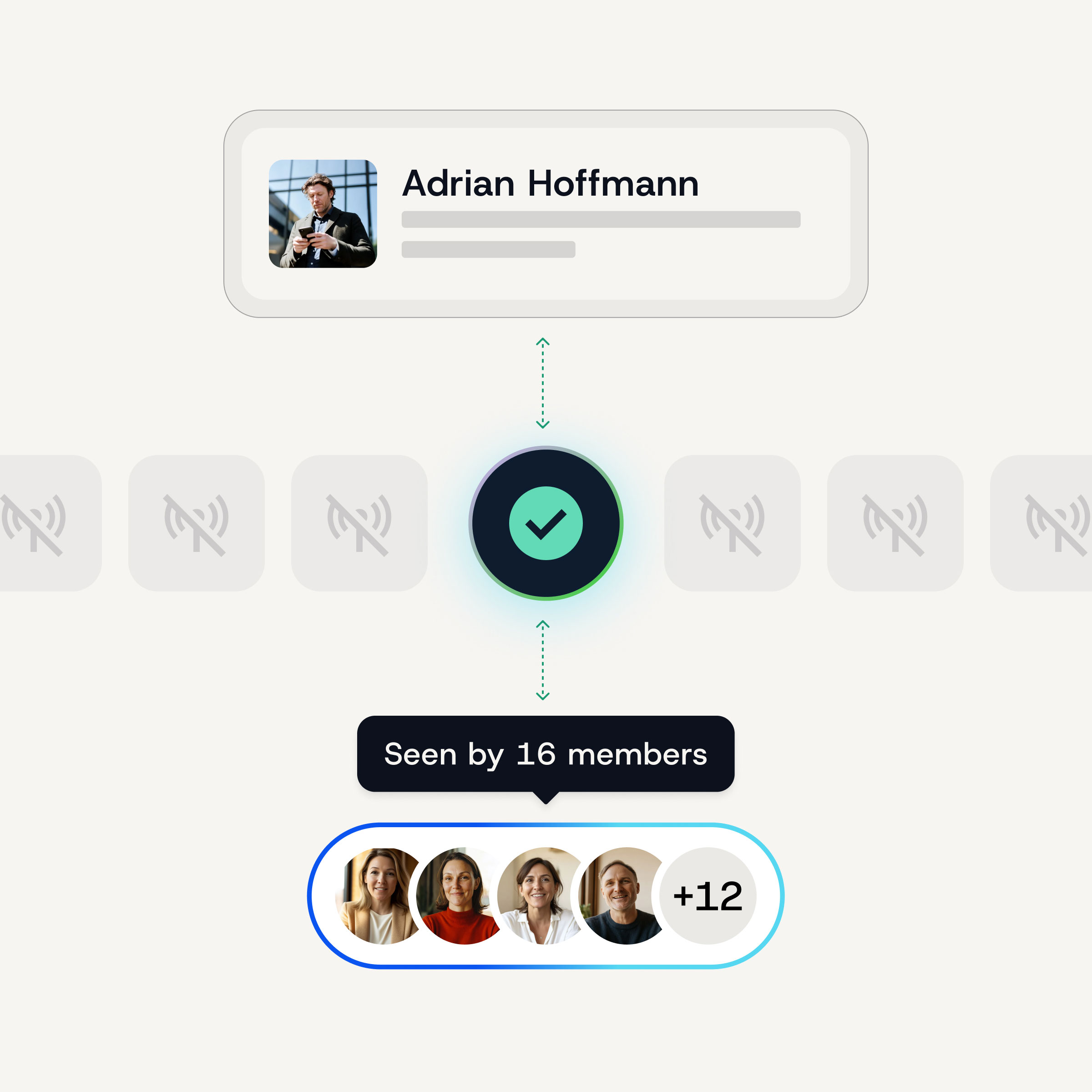
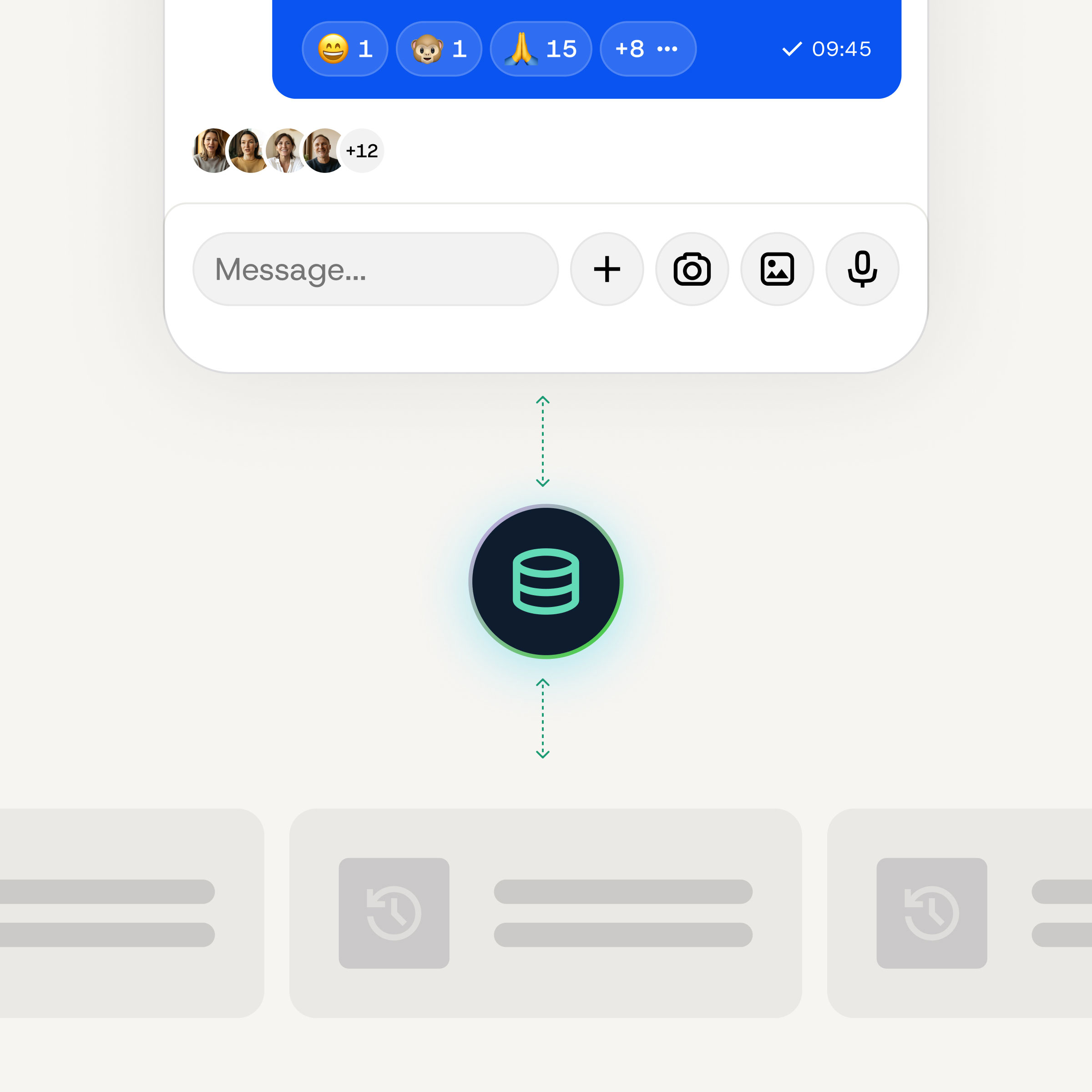
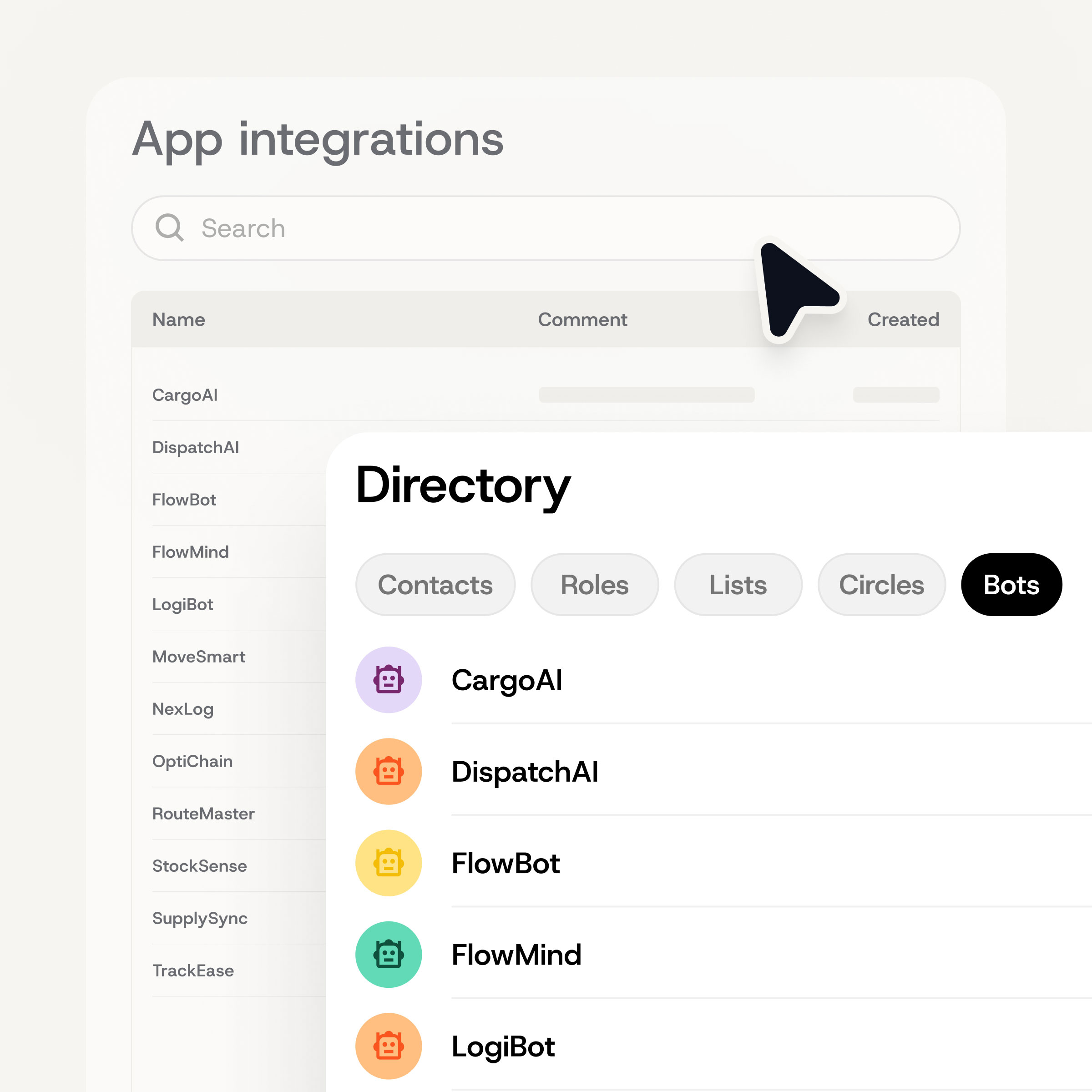
Centrally manage users, devices, and security policies with ease
In ministries, communication structures must be clearly regulated, traceable, and securely managed. Teamwire significantly simplifies the administration of users, devices, and policies — fully audit-proof, GDPR-compliant, and tailored to complex government environments.
Central administration dashboard
Manage users, roles, devices, and permissions from a single, intuitive interface — securely and transparently. Designed for ministries, departments, parliamentary groups, and state representations.
Seamless integration into existing IT systems
Integrate Teamwire with existing identity management systems via LDAP or Active Directory. All changes are synchronized automatically — reducing manual effort and potential errors.
Secure Mobile Application Management (MDM/UEM)
Protect confidential communication with encrypted app containers. Teamwire supports all major MDM, EMM, and UEM systems via AppConfig — ensuring secure use, even with BYOD devices.
Audit-proof logging and compliance reporting
All administrative actions are automatically documented — ensuring full traceability for internal audits and compliance with NIS 2, GDPR, IT-SiG 2.0, and other regulations.
Federated communication between ministries and authorities
Communicate securely with other ministries, state governments, or external authorities via encrypted federation channels — ensuring data sovereignty while maintaining clear jurisdictional boundaries.
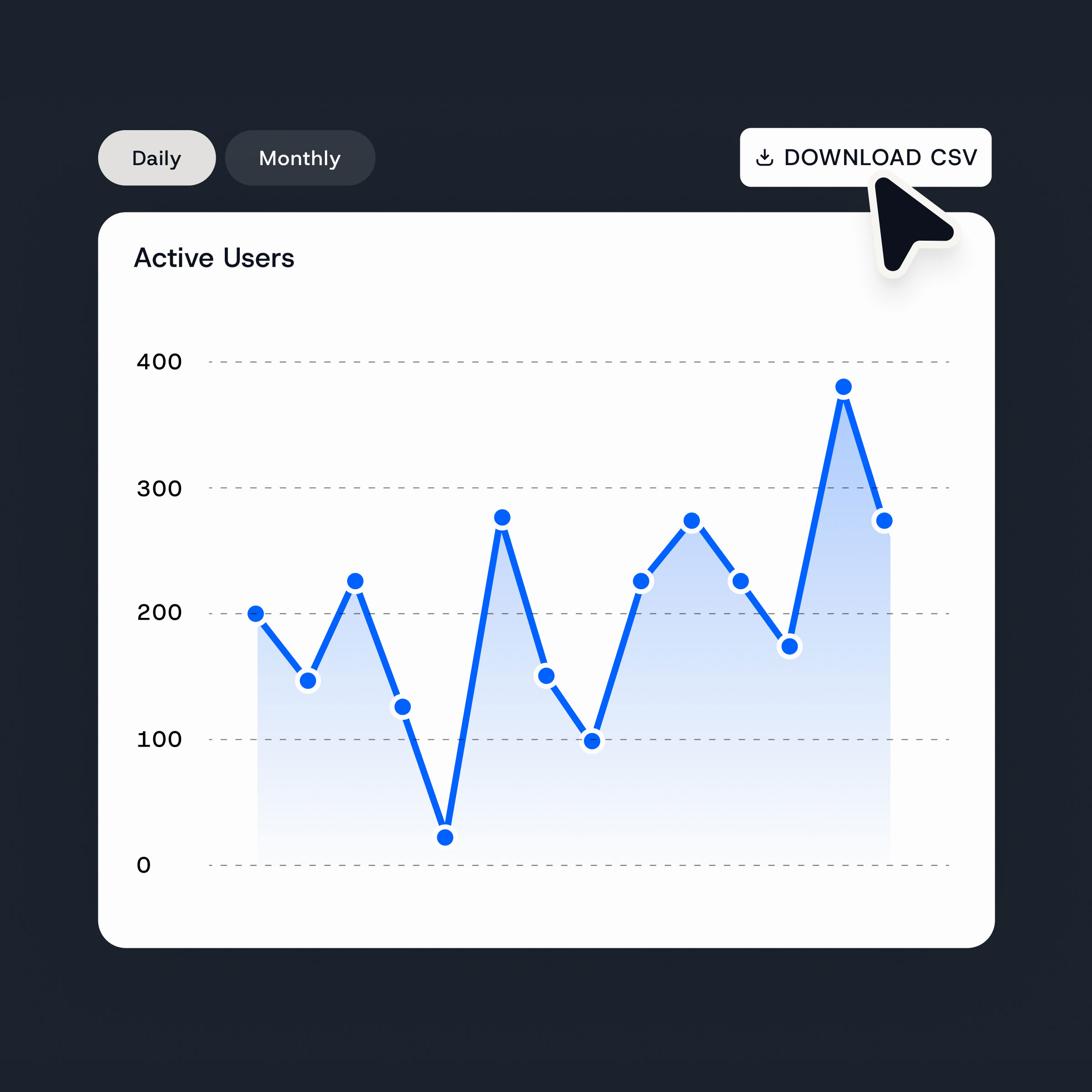

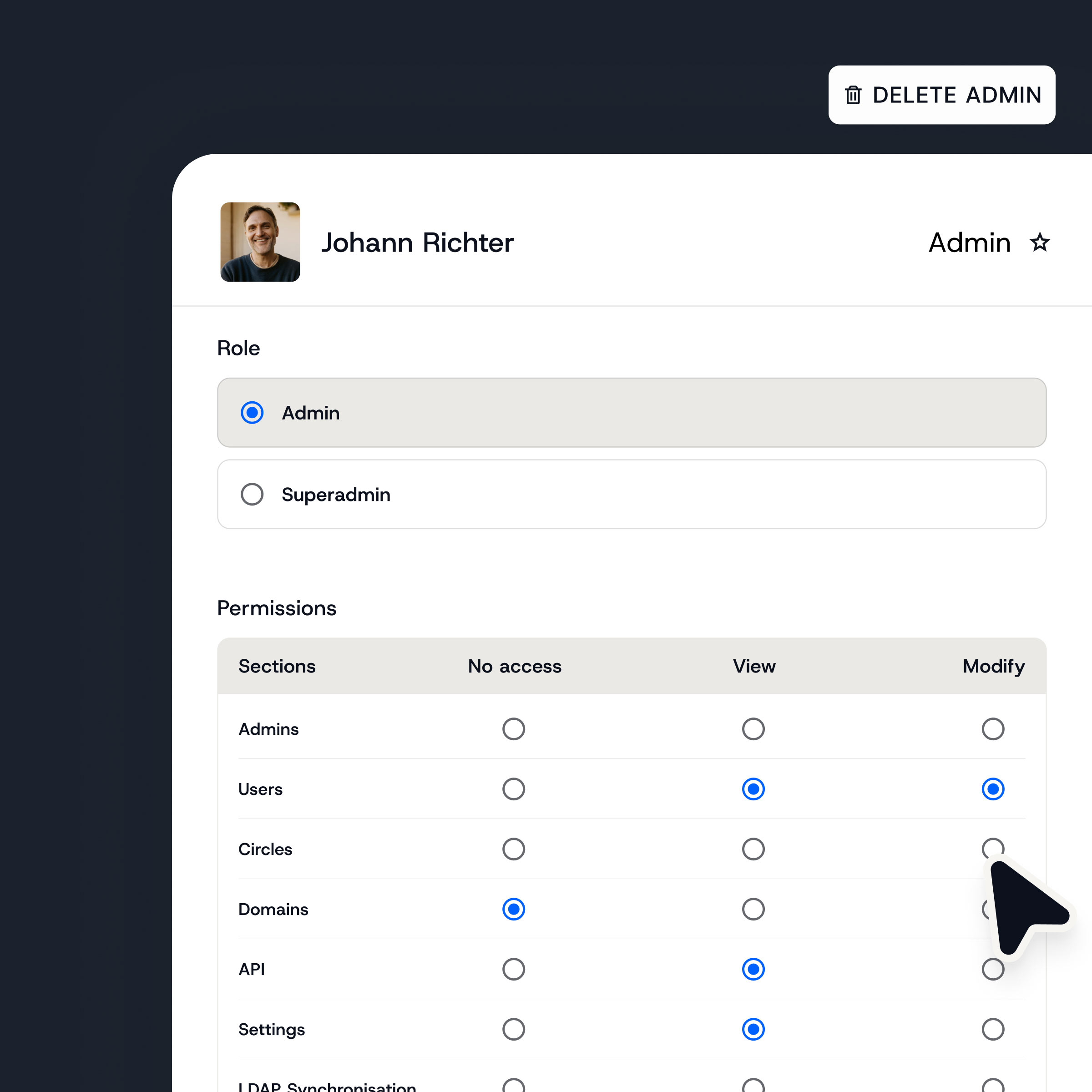


Additional valuable features for confidential communication, clear processes, and maximum control
Live locations
Track the location of relevant employees, crisis teams, or delegations in real time, e.g., during a state visit. A clear map shows you approved locations, roles, and responsibilities. This allows you to maintain an overview even in dynamic situations and make informed decisions.
Easy map editing
Mark critical locations directly on a live map — such as evacuation zones, operations areas, government buildings, or assembly points. Up to 10 points of interest can be defined. If required, external map data such as ArcGIS can be integrated. Ideal for situation reports, crisis coordination, or operational planning across ministries.
Read confirmations and reporting
Instantly see who has read important messages — for example, during confidential communications, urgent decisions, or security-related updates. Ideal for cabinet discussions, crisis teams, and interdepartmental coordination.
Reply and forward messages securely
Respond to specific messages within a chat or forward relevant information directly to other departments. This keeps communication traceable — especially during complex decision-making processes.
@Mentions for targeted attention
Tag individuals or groups to highlight urgent requests or draw attention to critical information. @Mentions override mute settings, ensuring important messages are never overlooked.
Pinned messages for clarity
Pin up to five priority messages at the top of a chat — such as decision drafts, emergency contacts, or procedural plans. This ensures essential information remains visible, even in long communication threads.
Apple CarPlay support
Stay securely connected during official travel or external appointments. With Apple CarPlay, messages can be read aloud, dictated, and responded to — hands-free and safely.
Full regulatory compliance
Teamwire complies with GDPR, ISO 27001, NIS 2, IT-SiG 2.0, and BSI C5. Your communication remains fully secure, auditable, and protected from unauthorized access.
Data-efficient architecture
Teamwire only processes the data strictly required for service delivery — no tracking, no analytics, no data sharing with third parties.
Powerful integrations
Using SDKs and APIs, Teamwire seamlessly integrates with existing infrastructures such as document management systems, crisis platforms, alert servers, or collaboration tools.
Central organizational directory for ministries and agencies
Keep full visibility of all departments, directorates, cabinets, and subordinate authorities. Distribution lists and user profiles enable targeted, structured communication — securely and efficiently.
Close chats to maintain structure and protect sensitive data
Archive completed topics or projects with a single click. This ensures clarity, prevents unauthorized access to confidential content, and supports clean communication workflows.
Typical Use Cases in Ministries
Ministries must remain operationally capable in every situation — whether during internal coordination, cross-department collaboration, or in times of crisis. With a reliable messenger for ministries and governments, confidential information is exchanged securely, decisions are made faster, and communication chains remain traceable end-to-end — safeguarding both the state and its citizens.
Coordination of cabinet and executive meetings
Policy proposals, amendments, and confidential documents can be shared and reviewed securely within Teamwire — fully GDPR-compliant. Read receipts and role-based permissions guarantee transparency without exposing sensitive content via email or consumer messaging apps.
Crisis and security communication
In the event of cyberattacks, natural disasters, or major political incidents, Teamwire remains fully operational — even if core IT systems fail. Push-to-Talk, broadcast messaging, and emergency alerts enable immediate distribution of critical information to all relevant stakeholders — from IT and press offices to ministers and state secretaries.
Inter-ministerial and federal coordination
With federated server infrastructure, ministries can collaborate securely with other government bodies and state authorities — without data leaving the European legal framework. Ideal for rapid coordination between federal and state levels.
Secure communication in political operations
Strategic documents, internal drafts, and sensitive messages stay protected at all times. No data is transferred to third countries, no unauthorized access is possible, and shadow IT is effectively eliminated.
Operational resilience during IT failures
If traditional communication systems such as email or phones fail, Teamwire remains available as an independent and secure fallback channel. This ensures ministries stay accessible and able to act — even during technical disruptions or cyber incidents.
Coordination with external partners and authorities
Communicate securely with state governments, subordinate authorities, or European partners via encrypted, federated connections — clearly separated, yet fully interoperable whenever needed.
Secure messaging during mobile operations, travel, or international missions
Ministers, advisors, and delegations remain securely connected while on the move — whether at conferences, state visits, or international meetings. With state-of-the-art encryption, a Zero-Trust security model, and sovereign hosting in Europe, all communication stays confidential and compliant — even across public or unsecured networks.
Frequently Asked Questions (FAQs)
Does Teamwire meet security requirements for ministries?
Yes. Teamwire complies with the highest security standards, is certified to ISO 27001 and BSI C5, and is built on a Zero-Trust security architecture. It is suitable for sensitive communication up to the classification level VS-NfD (classified information – for official use only).
Where is the data hosted?
All data is hosted exclusively in certified data centers in Germany. Teamwire offers public-cloud, private-cloud, and fully on-premises deployments — ensuring maximum control and digital sovereignty.
Is Teamwire independent from U.S. providers and the CLOUD Act?
Yes. Teamwire is a German company with development entirely within the EU. No U.S. cloud services or infrastructure are used at any stage — meaning Teamwire is not subject to the U.S. CLOUD Act or similar foreign legislation.
Can Teamwire be integrated into existing IT systems?
Absolutely. Teamwire integrates easily via LDAP/Active Directory, MDM/UEM systems, and additional APIs. Custom integrations for federal or ministerial structures can also be supported.
Does Teamwire work during IT outages or cyberattacks?
Yes. Teamwire operates independently of your primary IT infrastructure. Even during system failures, network disruptions, or cyberattacks, communication remains active. The platform serves as a secure fallback channel to maintain operational capability.
How is Teamwire introduced within a ministry?
Teamwire can be rolled out modularly — in a pilot department or ministry-wide. Our team supports you with IT planning, setup, data protection, and training. Roll-out is typically completed within days or weeks, depending on license volume and integration depth.
Can external authorities or partners be connected?
Yes. Through Teamwire Federation, secure, server-to-server communication can be established with other ministries, state authorities, or subordinate agencies.
Is Teamwire GDPR- and NIS-2-compliant?
Yes. Teamwire is purpose-built for security-critical public institutions. It fully complies with GDPR, NIS 2, ISO 27001, and follows the principle of European data sovereignty. All data is stored exclusively in certified German data centers — with no access by third countries or U.S. legislation (e.g. CLOUD Act).
How does Teamwire ensure confidentiality of sensitive information?
Teamwire uses multi-layer encryption and a Zero-Trust security model. Every device and user is authenticated before access is granted. Confidential discussions, documents, and decisions remain protected — even during travel or mobile use.
How is Teamwire different from tools like Microsoft Teams, Signal, or WhatsApp?
Unlike consumer apps or U.S.-based platforms, Teamwire is designed specifically for security-relevant communication in government institutions. It is fully GDPR-, NIS 2- and DORA-compliant, hosts all data in Germany, and provides full control over access, infrastructure, and retention.
Is Teamwire suitable for large organizations with thousands of employees?
Yes. Teamwire is fully scalable and multi-tenant, supporting over 100,000 users. Multiple departments, agencies, or ministries can be centrally managed and securely connected within one platform.